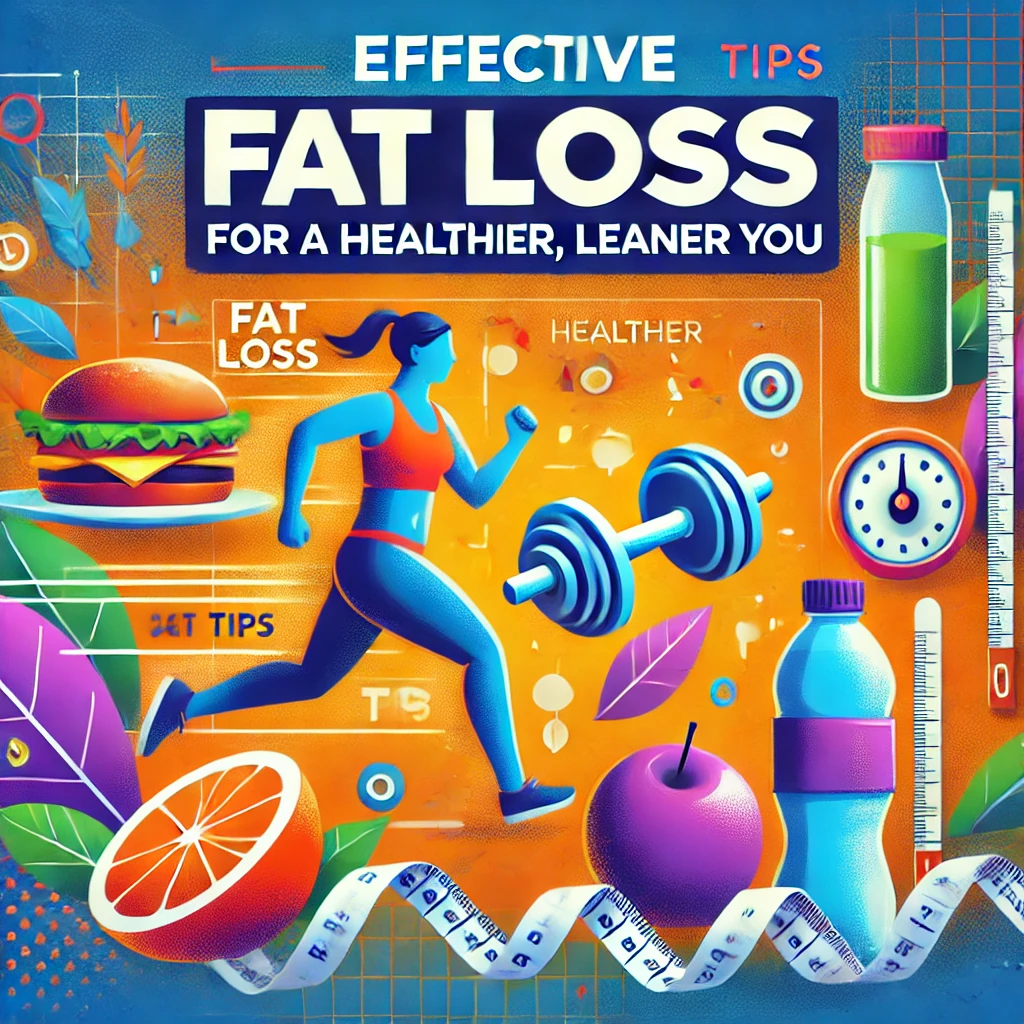Losing fat and maintaining a healthy weight is a common goal for many, but it often requires a combination of proper nutrition, consistent exercise, and lifestyle adjustments. As a British writer with a deep interest in health and fitness, I’m excited to share some practical and effective fat loss tips to help you achieve your goals.
1. Create a Caloric Deficit
The foundation of fat loss is consuming fewer calories than your body burns. This can be achieved by reducing your caloric intake through diet and increasing your caloric expenditure through physical activity. Use a calorie-tracking app to monitor your intake and ensure you’re in a caloric deficit.
2. Eat a Balanced Diet
Focus on a balanced diet rich in whole, unprocessed foods. Include a variety of fruits, vegetables, lean proteins, whole grains, and healthy fats. Avoid sugary, high-calorie processed foods that offer little nutritional value.
3. Prioritize Protein
Protein is crucial for maintaining muscle mass during fat loss. It also helps keep you full, reducing the likelihood of overeating. Aim to include a source of protein in every meal, such as lean meats, fish, eggs, beans, and legumes.
4. Stay Hydrated
Drinking plenty of water is essential for overall health and can aid in fat loss. Water helps control appetite, supports metabolism, and improves digestion. Aim for at least 8 glasses of water a day, and more if you’re physically active.
5. Incorporate Strength Training
Strength training is important for preserving muscle mass and boosting metabolism. Include exercises like squats, deadlifts, and bench presses in your routine. Aim to strength train at least two to three times a week.
6. Add Cardio
Cardiovascular exercise helps burn calories and improve heart health. Incorporate activities like running, cycling, swimming, or brisk walking into your routine. Aim for at least 150 minutes of moderate-intensity cardio each week.
7. Get Enough Sleep
Quality sleep is crucial for weight loss and overall health. Aim for 7-9 hours of sleep per night. Poor sleep can disrupt hormones that regulate hunger and appetite, leading to increased calorie consumption.
8. Manage Stress
Chronic stress can lead to weight gain by increasing levels of the hormone cortisol, which can promote fat storage, especially around the abdomen. Practice stress management techniques such as meditation, deep breathing, yoga, or hobbies that you enjoy.
9. Avoid Sugary Drinks
Sugary drinks like sodas, energy drinks, and some fruit juices can add a significant amount of calories without making you feel full. Opt for water, herbal teas, or black coffee instead.
10. Eat Mindfully
Practice mindful eating by paying attention to your hunger and fullness cues. Avoid distractions like TV or smartphones during meals, and take the time to savor each bite. This can help prevent overeating and promote better digestion.
11. Plan and Prepare Meals
Planning and preparing meals in advance can help you make healthier choices and avoid the temptation of fast food or unhealthy snacks. Batch cooking and meal prepping can save time and ensure you have nutritious options readily available.
12. Track Your Progress
Keep track of your weight loss journey by monitoring your progress with regular weigh-ins and body measurements. Celebrate your achievements, no matter how small, to stay motivated.
Conclusion
Achieving fat loss requires a holistic approach that includes a balanced diet, regular exercise, adequate sleep, and stress management. By incorporating these practical tips into your routine, you can work towards a healthier, leaner you. Remember, consistency is key, and small, sustainable changes can lead to significant results over time.



